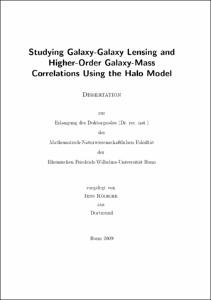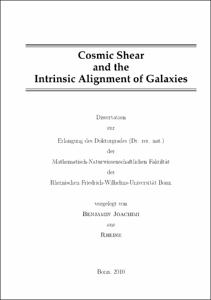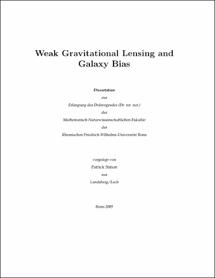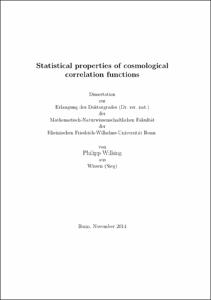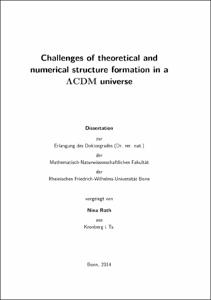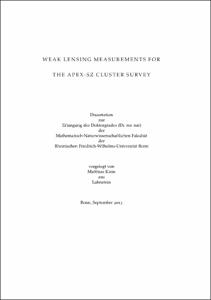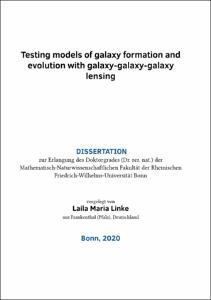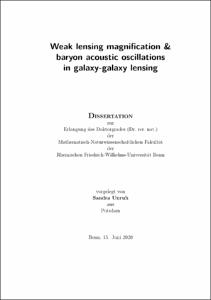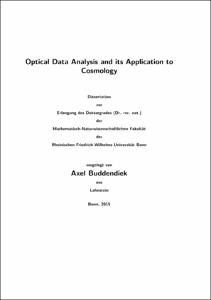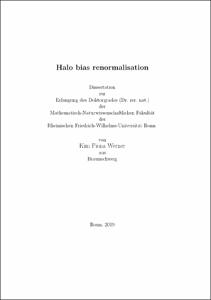E-Dissertationen: Search
Now showing items 1-10 of 10
Studying Galaxy-Galaxy Lensing and Higher-Order Galaxy-Mass Correlations Using the Halo Model
(2009-06-22)
In recent years, the distribution of galaxies in the Universe could be measured up to large distances and over a significant part of the sky. The analysis of this large-scale structure contains a wealth of cosmological ...
Cosmic Shear and the Intrinsic Alignment of Galaxies
(2010-11-12)
Cosmology has recently entered an era of increasingly rich observational data sets, all being in agreement with a cosmological standard model that features only a small number of free parameters. One of the most powerful ...
Weak Gravitational Lensing and Galaxy Bias
(2005)
Galaxies were formed from primordial baryonic matter within the gravitational potential of the dark matter. Today a confusing wealth of different galaxy populations is known. Explaining the emergence of this zoo of galaxy ...
Statistical properties of cosmological correlation functions
(2015-04-24)
Correlation functions are an omnipresent tool in astrophysics, and they are routinely used to study phenomena as diverse as the large-scale structure of the Universe, time-dependent pulsar signals, and the cosmic microwave ...
Challenges of theoretical and numerical structure formation in a ΛCDM universe
(2015-06-22)
Systematic surveys of the extra-galactic sky have revealed the existence of large-scale structures in the Universe: the galaxy distribution is organized in a complex network of filaments surrounding underdense regions and ...
Weak lensing measurements for the APEX-SZ cluster survey
(2014-12-02)
The formation of structures in the universe, such as galaxy clusters, depends sensitively on cosmological parameters. Measuring the abundance of clusters as a function of mass and redshift therefore yields a way to constrain ...
Testing models of galaxy formation and evolution with galaxy-galaxy-galaxy lensing
(2021-03-29)
Explaining the formation and evolution of galaxies is a fundamental issue in modern astronomy. Several competing models try to explain how galaxies form and predict the relationship between galaxies and dark matter. A ...
Weak lensing magnification & baryon acoustic oscillations in galaxy-galaxy lensing
(2021-09-08)
Cosmology is the science that aims to explain the Universe in its entirety. While the standard cosmological model has had tremendous success in explaining independent astrophysical observations, we still lack understanding ...
Optical Data Analysis and its Application to Cosmology
(2016-03-30)
This work is concerned with different aspects of observational cosmology. It covers a broad range of problems that one needs to deal with in optical astronomy.
Three introduction chapters about cosmology, gravitational ...
Three introduction chapters about cosmology, gravitational ...
Halo bias renormalisation
(2020-06-09)
Modern galaxy redshift surveys provide a wealth of information about the evolution of our Universe. They allow to measure both the two-dimensional position on the sky and the distance (given by the cosmological redshift) ...


